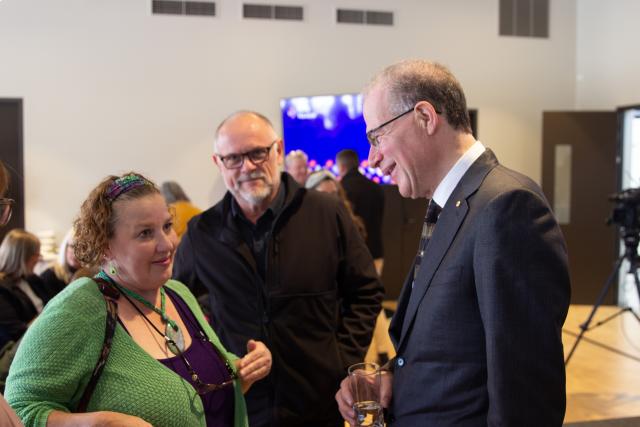The independent National Disability Insurance Scheme (NDIS) Review panel visited Geelong this week to meet with the local disability community and discuss the recommendations the Review will present to government.
The review panel was at the Eastern Hub Geelong Community Centre on Wednesday, September 6, where people with disability, their families and carers joined them for morning tea followed by a community meeting, which was also livestreamed from the centre.
The panel, co-chaired by Professor Bruce Bonyhady AM and Lisa Paul AO PSM, heard the community’s stories and outlined to those present its recommendations for improving NDIS delivery and the foundational supports required to broaden assistance given to the disability community.
“Really, the big message is the scheme is here to stay – it’s literally changing the lives of hundreds of thousands of people – but there’s also a real opportunity to make it even better for people with disability and their families,” Prof Bonyhady said.
“When we think about and structure the scheme, we need to ensure there are supports available to those who need the scheme, but also people with disability outside the scheme.
“About one in five Australians have a disability, but only about 1 in 50 are eligible for the scheme, so most people with disability are not participants.”
The review panel will recommend governments and community organisations need to implement a range of supporting mechanisms to assist the broader disability community.
“In terms of implementation there will (need to) be various arms of government involved, including, very importantly, the (NDIS) agency,” Prof Bonyhady said.
“But there are a number of areas where it will be very important that the implementation is not just down to government, but that they work really closely with the disability community on details of the reforms.”
He said while broader supports were the main point, the review had found other ways NDIS service delivery could be improved.
“The second point is that not everyone who needs the scheme is getting access, particularly if you look at First Nations Australians in remote communities,” he said.
“The third area is there are some real opportunities to improve quality and training to get better outcomes.
“That’s what we’ve heard from participants and their families. That’s what they’d like to see and so that’s where we’re focusing our recommendations.”









